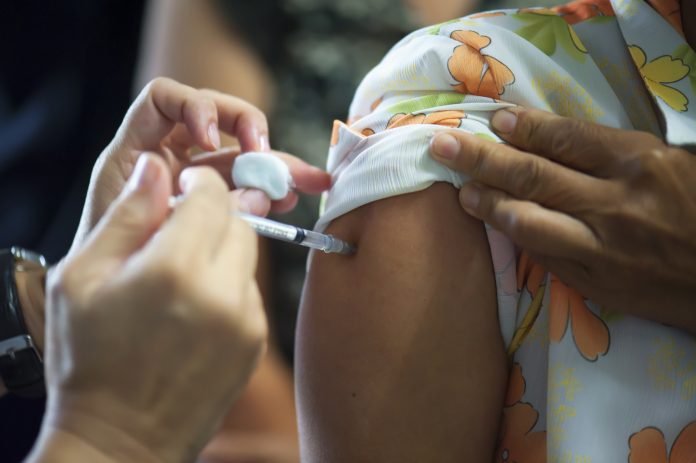Open Access Government produces compelling and informative news, publications, eBooks, and academic research articles for the public and private sector looking at health, diseases & conditions, workplace, research & innovation, digital transformation, government policy, environment, agriculture, energy, transport and more.
Home Search
AI healthcare - search results
If you're not happy with the results, please do another search
Sri Lanka: Refugees targeted after Easter Sunday attacks
The Sri Lankan government must ensure that over 1,100 refugees and asylum-seekers forced from their homes by mobs after the Easter Sunday massacre are immediately provided with adequate help.
UK’s approach to antimicrobial resistance (AMR) gets UN recognition
The United Nations (UN) Food and Agriculture Organization (FAO) has awarded official designation to the UK International Reference Centre for antimicrobial resistance (AMR).
The NHS Long Term 10-Year Plan: Why technology is the key
Wayne Miller, Healthcare Director EMEA at Zebra Technologies discusses why technology is the key to a successful NHS Long Term Plan.
How digital enablement frees up time and money for front-line services
James Cherry, CTO of Northdoor, explores how modernising the NHS data estate can free up time and save money, which ultimately benefits front-line services.
UK commits to International Research and Innovation Strategy
New International Research and Innovation Strategy launched to ensure the UK remains a global leader in science.
MindWell launches wellbeing guide for Leeds employers
MindWell, a mental health website for people in Leeds, commissioned by NHS Leeds CCG, is launching ‘MindWell at Work’, a new employee wellbeing guide for employers.
Trans people in China risk lives with dangerous self-surgery
Trans people in China are performing highly dangerous surgery on themselves and buying unsafe hormone treatments on the black market.
Lithuania: A hotspot for cost effective and world-class medical care
UK patients are looking to European destinations such as Lithuania, where world-class medical care can be carried out quicker, privately, and at a much lower cost.
£1.9 million for rough sleepers living with mental illness
Adults who are sleeping rough and living with mental illness or substance misuse will benefit from £1.9 million funding to improve their access to vital healthcare.
How can economics tackle the issue of antimicrobial resistance?
Applying the economics of climate change to antimicrobial resistance could help to avert the 10 million deaths that are predicted to occur by 2050 if urgent action isn’t taken.
How can bots improve social care?
Helen Dempster, Chief Visionary Officer at Karantis360, discusses how human and bot working successfully together could improve social care.
The race to paperless: How the NHS is moving towards a digital future
Jonathan Elliott, Director and General Manager, Public Sector at Xerox comments on how the NHS is moving towards a digital future and eliminating paper.
How can people-powered health drive cloud innovation?
Cleveland Henry, Director of Cloud at UKCloud discusses the topic of properly handling and storing patient data using cloud innovation, here.
Technology opens new opportunities to increase adult vaccinations
Technology could play a major role in overcoming some of the barriers to the uptake of adult vaccinations argues a new report, “Data, bots and drones”, published by the International Longevity Centre UK (ILC).
How can the use of data help police stop county lines crime?
The police in the UK are using technology to fight crime: Read on to find out how use of data is becoming a key strategy for how the police tackle cross-county crime.
5G: The potential to transform public services in a smart city
Whilst 5G is discussed in the same breath as national security and Theresa May's decision-making, Iain Shearman discusses using 5G networks to support smart cities.
Mental health in Germany: A focus on ward-equivalent treatment
Laura Kirschbacher, Corporate Communications Manager at Pfalzklinikum AdöR talks about ward-equivalent treatment (WeT), a special kind of hometreatment, where a multi-professional team visits the patients at home: She accompanied WeT social worker Linda Seez to find out more.
The truth of the Windrush scandal: One year on
Today marks one year since Amber Rudd’s formal apology for her actions against the Windrush migrants: Amnesty examines what really happened, what the effects are to this moment and where the UK government can go from here.
Napp: Reducing the burden of chronic conditions through partnership
Chronic conditions, such as asthma and diabetes, are creating an increasing burden on the health service.
Delivering improved health and wealth in the UK
Jane Kinghorn, Director of the Translational Research Office at UCL, discusses the importance of research and partnership in improving the health and wealth of the UK.





















